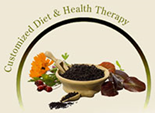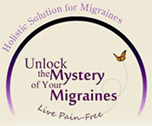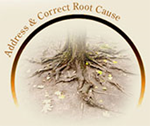Are these Health Problems sound familiar to you?
Change in vision
Sleep problems/insomnia
Hallucination
slurred speech
Memory loss
Brain tumors
Poor equilibrium (bodily balance, emotional stability)
Change in heart rate – heart palpitations
Fatigue and weakness
Neurological/behavioral symptoms including headaches, dizziness, and mood changes such as depression and anxiety, seizure and convulsion
Gastrointestinal symptoms including nausea and vomiting, abdominal cramps/pain and diarrhea
Allergic type and/or dermatologic symptoms including hives and rash
Alterations in menstrual patterns
Migraine headaches
Guess what is causing all the above health problems?
It’s any kind or brand of artificial sweeteners.
Here’s a list of some of them: Saccharin (Seet’N Low), aspartame (Equal, NutraSweet, Amino Sweet, Canderel, Natra Tase, Spoonful, Neotame), and sucralose (Splenda).
Check out the following information:
(1) Dangerous Synthetics
Aspartame is known as a cancer-causing compound in rats. It’s composed of aspartic acid, phenylalanine, and methanol. It was approved for food use by the FDA in 1981. The brand names of Aspartame are: NutraSweet, along with Equal, Spoonful, Indulge, Equal-Measure, etc…
Aspartame was discovered by accident in 1965 when a chemist with G.D. Searle Pharmaceutical was testing an anti-ulcer drug. He happened to lick his hand, and the rest is history… Aspartame kills brain neurons. Russell L. Blaylock, professor of neurosurgery at the University of Mississippi’s Medical Center, explains in his book Excito-toxins: The Taste That Kills that though aspartame and glutamate (in the chemically related substance MSG) is a neurotransmitter normally found in the brain and spinal cord.
When aspartame reaches certain levels it causes the death of brain neurons. The risk to infants, children, and pregnant women are higher because the blood/brain barrier, which normally protect the brain, is not fully developed until adulthood.
Dr. Blaylock and numerous other experts believe that long-term exposure to excito-toxins may play a part in diseases such as: Brain lesions and tumors, Early-onset Alzheimer’s Disease, Epilepsy, Hearing problems, Lupus, Memory loss, Multiple sclerosis, and Parkinson’s Disease.
(2) One study found that high aspartame levels affect cellular enzyme activity, interfering with antioxidants and with non-nutritive additives like commonly used food coloring agents, found a cumulative effect that increased cellular toxicity to significant levels (Lau et. al., 2006).
No chemicals in our bodies are isolated so compounds such as aspartame will interact with food, alcohol, medicines and environmental toxins in unique and unpredictable ways. We need to minimize chemical soup in our blood.
For two decades the aspartame controversy has continued to simmer, leaving respectable organizations with opposing verdicts. The American Diabetes Association (ADA), the American Academy of Pediatrics (AAP), the American Medical Association (AMA), and the Epilepsy Institute endorse aspartame as safe (though it is a matter of record that several of these organizations have received donation from NutraSweet).
Products Contain Aspartame- Black list of Aspartame
Beware of food products containing these words: “Lite”, “Diet”, “Low-calorie” and “No calorie”.
Among these are: Diet iced teas, Diet soft drinks, Crystal Light, Yogurt lite, Diet Jell-O, Some cereals, and Some children’s vitamins. (3)
The unprecedented number of complaints caused the FDA to call in the Centers for Disease Control (CDC), who concluded that adverse reactions to aspartame were occurring in “unusually sensitive” individuals, but that there was insufficient evidence to prove existence of wide-spread health problems attributable to its consumption.
Reference:
(1) Excerpted from an article by Bill Strubbe, a California-based freelance writer who confesses to having once been addicted to Sweet tarts. Introduction of Nutrition Handbook (distance learning program) p131-132-133-134)
(2) (Aspartame Research: Questions Remain by Jodi Friedlander M.S. & Edward Bauman, M.Ed., Ph.D. Introduction of Nutrition Handbook (distance learning program) p 133-134)
(3) (http://articles.mercola.com/sites/articles/archive/2009/07/14/Study-Links-Aspartame-To-Leukemia-and-Lymphoma.aspx) – http://articles.mercola.com/sites/articles/archive/2011/06/08/aspartame-toxic-sweetener.aspx
Looking for Artificial Sweeteners Alternative?
Certified organic cane sugar
Raw, unfiltered, and unheated organic honey
Stevia
Xylitol









